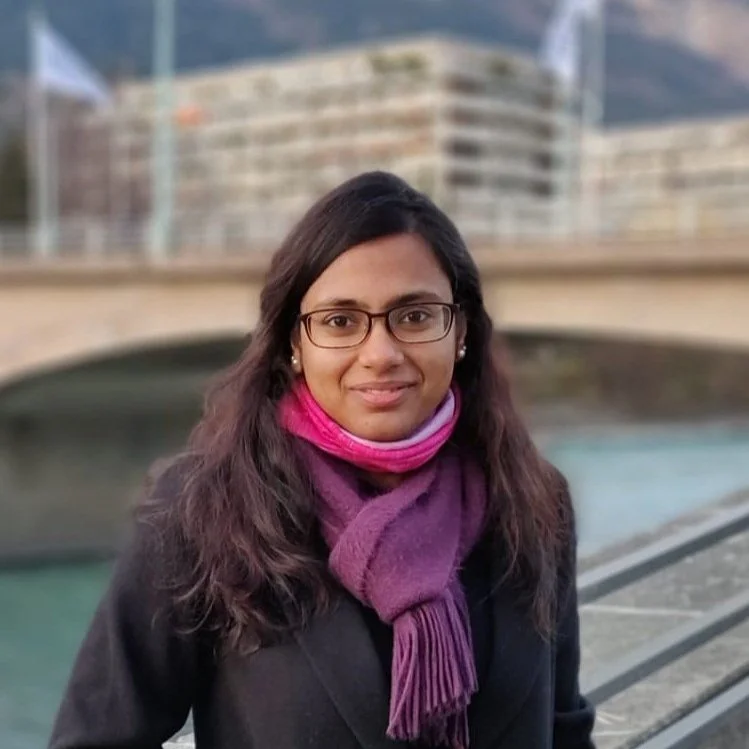Rachel Bezner Kerr
LAB Coordinator
Rachel Bezner Kerr is a Professor in Global Development at Cornell University. She is a development sociologist with a background in soil science and international development. She does participatory research in Malawi and Tanzania with smallholder farmers, She served as a Coordinating Lead Author for ‘food chapter’ of Working Group II (Impacts, Adaptation and Vulnerability) of sixth assessment report of the Intergovernmental Panel on Climate Change. She previously served as a member of the High Level Panel of Experts, part of the UN Committee for World Food Security, through co-authoring a report on agroecology and other innovations to address food security and nutrition. She is the director of the Development Studies graduate program in Cornell University, and the director of the Institute for African Development of the Einaudi Center at Cornell University.
Lara Roeven
PhD student, Development studies, Cornell University
Lara’s research interests include agrobiodiversity conservation, farmers' seed systems, access and benefit sharing, biocultural diversity and rights, and the political economy and history of agricultural science and technology. Her dissertation project examines how state-led and development projects focused on the in situ conservation and repatriation of potatoes in Peru reshape seed exchange among farmers and between farmers and genebanks, and to what effect. She is interested in how changes in seed exchange affect gender, class, and generational relations in agrarian contexts. Her work is situated at the intersection of critical development studies, feminist political ecology, and science and technology studies. Prior to coming to Cornell, Lara worked as a research assistant at the International Maize and Wheat Improvement Center (CIMMYT), where she studied gender and social relations in agricultural development. She obtained a BSc in Politics, Psychology, Law, and Economics (PPLE) at the University of Amsterdam and an MS in Development Studies at Cornell University.
Anjana Ramkumar
PhD Student, Development Sociology, Cornell University
Anjana is broadly interested in the nexus between agroecology and postcolonial development. Her work explores the eco-social dimensions of agriculture and seeks to understand how agroecological practices contest dominant narratives of development by embracing alternative economies and ecologies of cultivation. Anjana’s dissertation project focuses on the cultivation of heirloom rice varieties in Tamilnadu, India within an agricultural landscape that has been, and continues to be, dominated by high-yielding varieties of the Green Revolution. Her research uses heirloom rice as a lens through which to engage with questions of food sovereignty, decolonisation, and repeasantization.
Prior to joining Cornell, Anjana served as an officer in the Climate Change Division of Singapore’s Foreign Service. She subsequently obtained a master’s degree in Geography from the National University of Singapore in 2019.
Jarvis Fisher
PhD Student, Development Sociology, Cornell University
Jarvis is interested in agroecology, the food sovereignty movement, and the history of economic and social thought. Through his work, he hopes to better understand the manner by which large-scale sociopolitical and economic conditions and altruistic development interventions contribute to inter-and intra-household differentiation within rural communities.
As a PhD student in Development Sociology, Jarvis is currently researching the political economy of rice and groundnut production in Senegal. His work explores the impact that Senegalese state agricultural policy has had on agrarian social relations and rural laborers’ perspectives on the comparative value of industrial and agroecological farming methods. Prior to his time at Cornell, Jarvis received his MSc in Development Studies from SOAS in 2015. In the years following his master’s degree, Jarvis managed and supervised anti-trafficking programs in West Africa and developed grant proposals to support international gender equality advocacy projects.
Emily Baker
PhD Student, Development Sociology, Cornell University
Emily's research uses a historical political ecology approach to explore how smallholders' experience of conflict and climate change shapes agrobiodiversity in cacao agroforestry systems, home gardens, and wildcrafted areas in Western Uganda and the eastern Democratic Republic of the Congo. She is interested in decolonial feminism, agroecology, and participatory action research.
Emily has a background in both agricultural science and social sciences, and she is interested in interdisciplinary research collaboration. She has served as Chapter Scientist and Contributing Author on the recent IPCC report: "Climate Change 2022: Impacts, Adaptation, and Vulnerability." She is working with SFHC and an interdisciplinary team on a "Participatory Forest Mapping" project to explore forest biodiversity and intergenerational knowledge. She has also collaborated with Cornell Small Farms in assessing the social and environmental impacts of local 'food hubs.'
Prior to joining Cornell, Emily was a researcher for Texas A&M University and the Conflict and Development Foundation in the eastern Democratic Republic of the Congo. She earned her M.S. degrees from the University of California, Davis, where she researched smallholder adaptation across different ecological landscapes in the Pare Mountains, northern Tanzania.
Mira Qi
PhD Student, Development Sociology, Cornell University
Mira’s work explores the interplay of state, gender, and agriculture production in shaping agrarian life. Through focusing on agroecology initiatives led by rural women in southwest China, she seeks to better understand the ways in which small farmers cope with or resist pressures that erode smallholder livelihoods, and how their differing livelihood approaches reconfigure the social and ecological relations of production along the lines of class, gender, and generation. Her dissertation project aims to provide key insights into rural women’s role in reshaping China’s agrarian landscapes and rural society, highlighting their struggles and agency. Prior to joining Cornell, Mira received her master’s degree from the University of California, Davis, where she conducted research on the alternative food movement in China.





